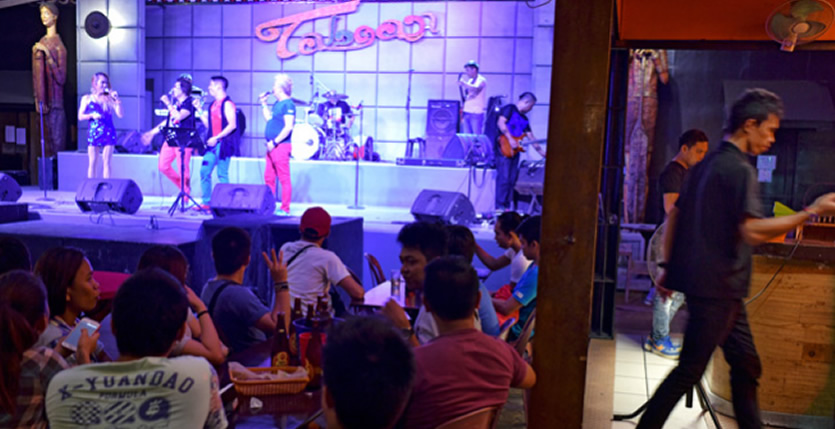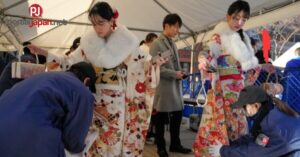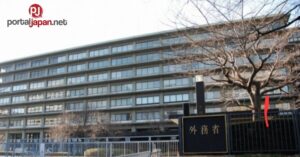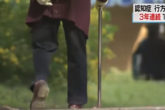Residents who are 18 or younger are not allowed on the street without an adult between 10 p.m. and 5 a.m. Liquor cannot be sold after 1 a.m. Smoking is banned throughout the city, except in a few designated areas.
A party town? Maybe not, but many people who live here in Davao City, where President-elect Rodrigo Duterte has been the mayor for most of the past two decades, say that’s not the point.
They believe that Duterte, who will begin his term on June 30, has brought safety and calm to a city that is surrounded by areas where violence is rife.
At Magsaysay Park along the waterfront, children roller-skate at an outdoor rink near stands selling brightly colored pomelo, mangosteen and other tropical fruits. Young couples sit on shaded benches, giggling and holding hands.
Nearby, police officers with automatic weapons patrol along the water’s edge, looking warily at the island of Samal in the distance. It was there that four people were kidnapped by Islamic rebels in September. Two Canadian hostages, John Ridsdel and Robert Hall, were later beheaded.
“Even at night it’s OK here, it’s safe,” said Irish Ricaforte, 19, a college student sitting in the park on a recent afternoon. “It’s not safe there,” she said, gesturing toward Samal. “That’s not Duterte.”
Duterte said repeatedly on the campaign trail that Davao City was a model for the policies he will carry out nationwide during his six-year term as president.
In the freewheeling Philippines, where smoking, drinking and staying out late are time-honored traditions in big cities and small towns alike, Duterte’s policies might be a tough sell. But in Davao City, many residents say they feel proud of the tough-talking mayor’s stance.
“There is a liquor ban, a curfew, no smoking, no crime,” said Patrick Seldar, 20, an aircraft maintenance student and avid Duterte supporter, who was spending the day at the park with his girlfriend recently.
“In Manila, there are all these crimes and problems,” he said, referring to the sprawling capital. “We don’t have that here.”
At the Beereaucracy Bar, in the middle of town, 60 types of craft beer line the walls above comfortable couches and wooden tables. “Keep Calm and Drink Beer,” one sign says.
Nick Lopez, one of the bar’s owners, says that last call is strictly enforced at 1 a.m. and that customers accept it.
“People go back to their homes,” he said. “There aren’t bar fights or drunken people wandering around at night. It’s quiet at night in the city.”
Asked whether the law can work elsewhere, he said: “I think it will work to have this same system in Manila. There will be resistance at first, but people will get used to it.”
Located on the coast of Mindanao Island in the southern Philippines, Davao City, with 1.6 million inhabitants, is an enclave of peace and relative prosperity.
It is surrounded by Islamic rebel groups, communist separatists and kidnap-for-ransom gangs that operate over vast stretches of the countryside. Firefights with the police and military, roadside bomb attacks and kidnappings take place throughout much of Mindanao but rarely happen in Davao City.
Duterte has been accused by the Roman Catholic Church and human rights groups of using vigilante gangs to kill suspected criminals, drug users, street children and, in some cases, people who had been mistaken for someone else.
Duterte even boasted during the campaign that he had killed criminals himself. While his remarks led to bafflement abroad, his vaunted toughness had a different effect on many at home, where the criminal justice system is broken, violent criminals are rarely convicted and the police are often corrupt.
Many Filipinos even say life under the dictator Ferdinand E. Marcos was a “golden age” of peace and prosperity.
At the Public Safety and Security Command Center here, 170 closed-circuit television cameras are constantly being monitored. Tyrone Gutierrez, a supervisor, said he can spot a crime as small as someone trying to have a quick, forbidden smoke on a side street.
When a crime is detected, even one as minor as littering, a police officer is dispatched to the scene to deliver a warning or to write out a citation if the person is a repeat offender, Gutierrez said. A SWAT team can be deployed to the scene of a major crime in minutes, he added.
Cameras can’t be everywhere, of course. In Isla Verde, a densely populated Muslim neighborhood in this predominantly Christian city, bearded men in traditional robes walk along narrow pathways as the afternoon call to prayer rings out.
Lakaw Andag, 16, a pedicab driver, was enjoying an illegal smoke break on the sidewalk after dropping off a passenger. When asked if he supported the mayor’s ban on public smoking, he replied enthusiastically that he did and displayed a clenched fist, the symbol used by Duterte supporters.
“I think it’s good to prohibit smoking because it’s bad for your health,” Andag said after taking a drag. “But it’s OK to smoke here because there are no police around.”
One of Duterte’s more contentious social policies can be observed on a clean, well-lighted street, where about two dozen young women stand in front of the Philippine Central Bank’s Davao City office.
Periodically, a car will drive up and one of the women will get in. The prostitutes, called “central bankers” because of where they gather, walk the street without fear of arrest. Unlike in Manila and most of the Philippines, there are no pimps present here, and the women are not darting from the police.
“The police don’t bother them,” says Jigs Aponte, 24, who works at the gas station near the bank. “Sometimes the Health Department comes by and checks them, but there are no problems around here.”
Although forced prostitution and trafficking women are illegal nationwide, prostitution in Davao City is considered a health issue for the women involved, not a police matter.
“We have a city ordinance that they should have a health card, but prostitution is not considered a crime by the woman,” said Andrea dela Cerna, a police spokeswoman.
Across town, in the crowded Bankerohan public market, a fetid canal full of sewage runs through the area where vendors sell fruit, vegetables and meat. At a makeshift construction site, concrete pipes will be used to cover the open canal and keep the area from flooding.
Rthe Origines, 21, who sells rice in the market, said the construction was a nuisance, but the project would be completed within six months.
“Mayor says it will be done by then, so it will be done,” Origines said, exhibiting confidence in a public works project, a rare sentiment in the Philippines, where deteriorating infrastructure is the norm.
Her optimism extended to Duterte’s crime-fighting agenda, which he has said “will be bloody.”
“He’s only going to go after the killers and the drug dealers,” Origines said with a smile. “Don’t be afraid.”
Source and image: Asahi

















Join the Conversation